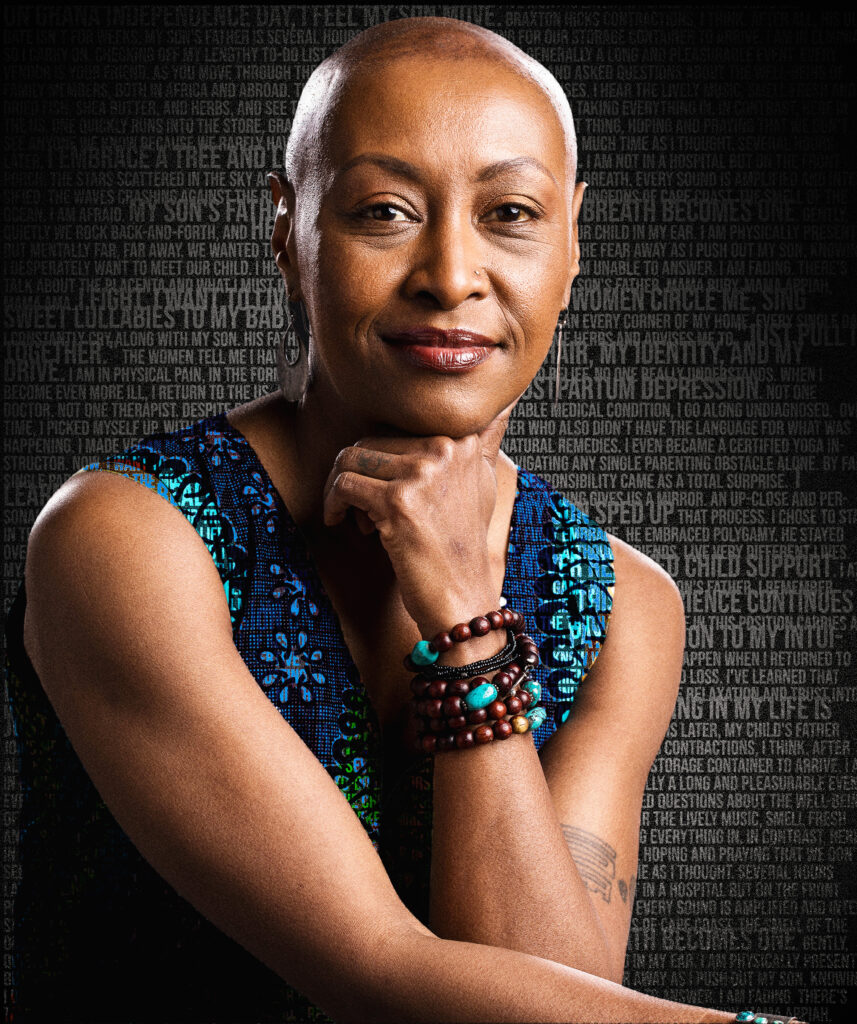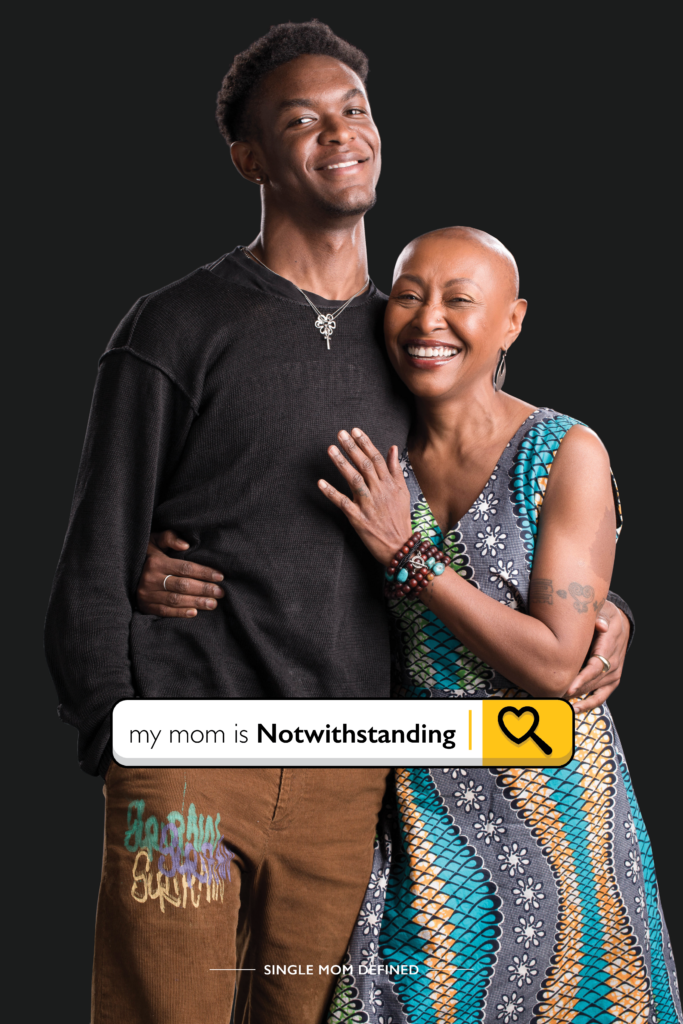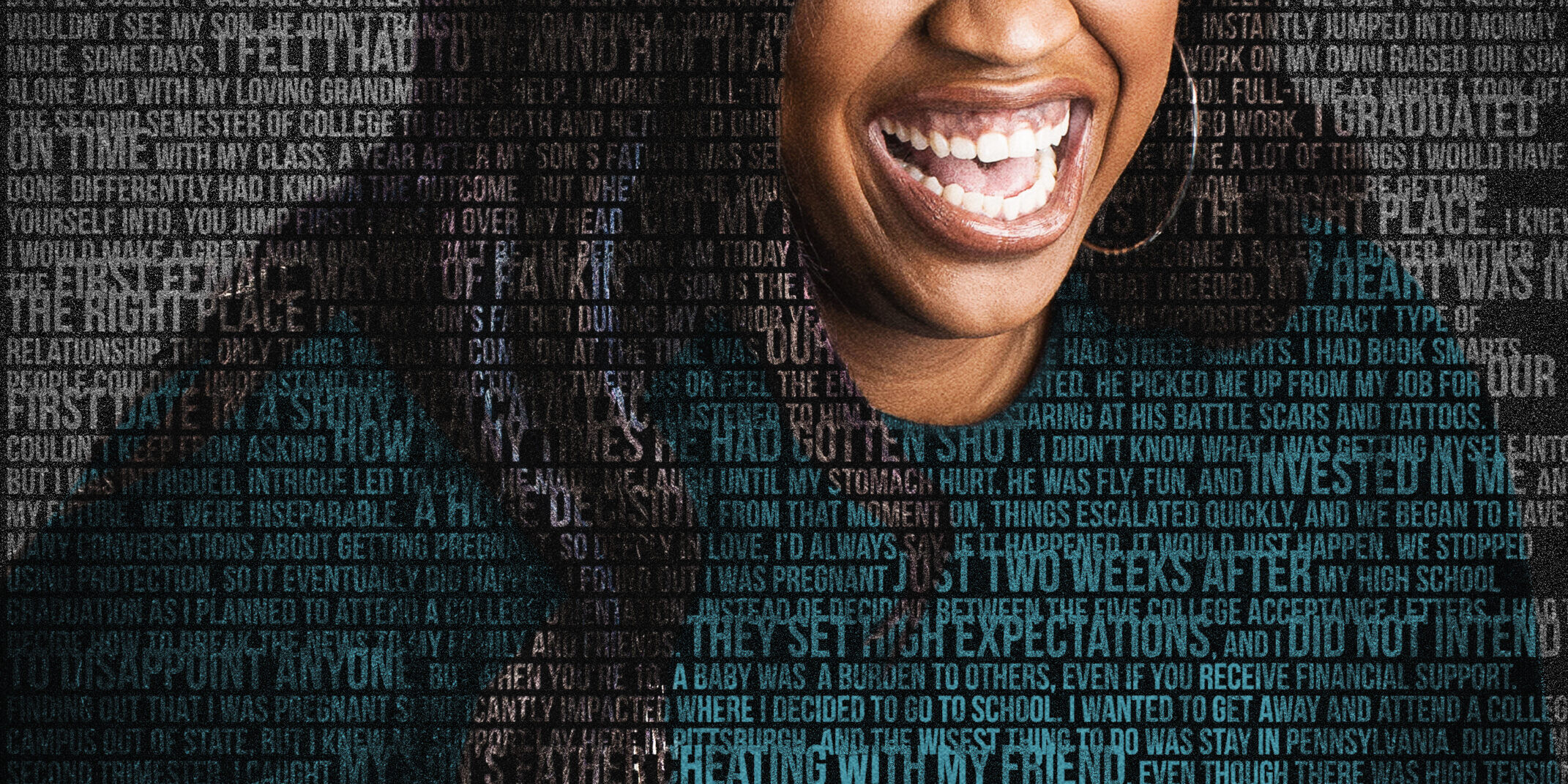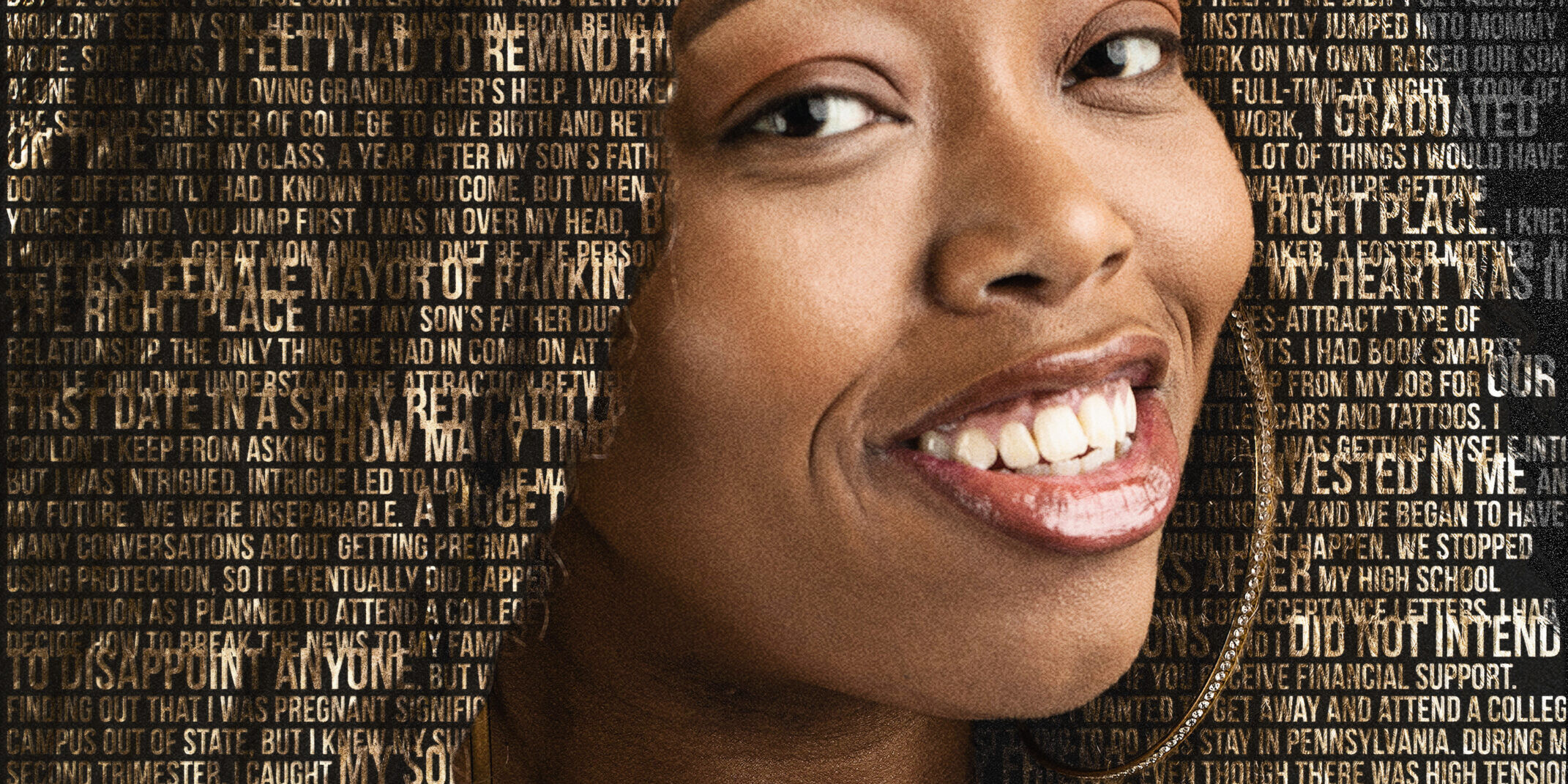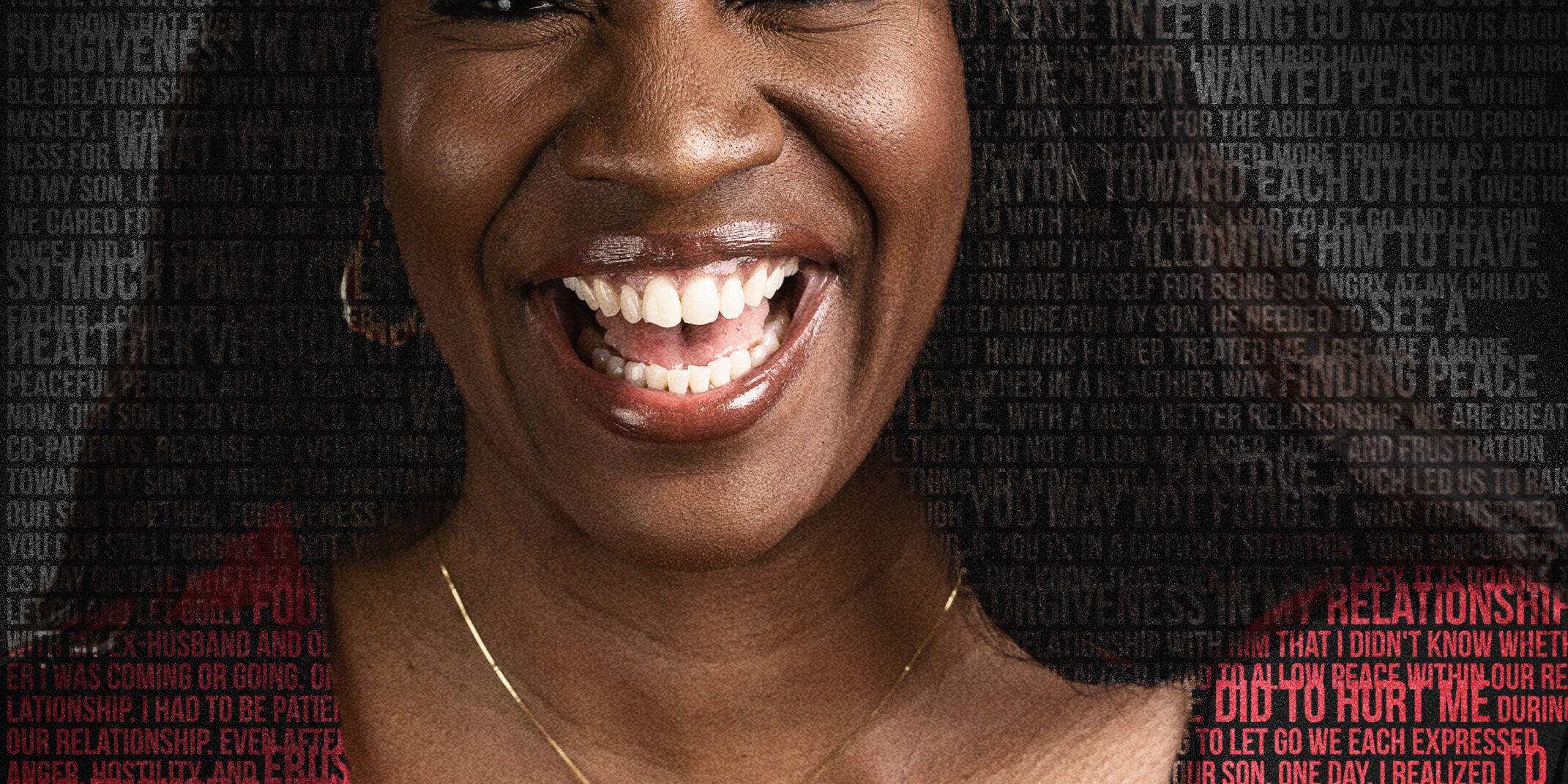In 1996, I travel to Ghana, West Africa, alone and three months pregnant. Five months later, my child’s father joined me. This is where my birth story begins.
On Ghana Independence Day, I feel my son move. Braxton Hicks contractions, I think. After all, his due date isn’t for weeks. My son’s father is several hours away in Accra, waiting for our storage container to arrive. I am in Elminia. So I carry on, checking off my lengthy to-do list. First to the market, which is generally a long and pleasurable event. Every vendor is your friend.
As you move through the crowd, you are greeted with love and asked questions about the well-being of family members, both in Africa and abroad.
The market immerses me in all of my senses. I hear the lively music, smell fresh and dried fish, shea butter, and herbs, and see the nursing mothers and curious children taking everything in. In contrast, here in the US, one quickly runs into the store, grabs groceries, runs out, and is onto the next thing, hoping and praying that we don’t see anyone we know because we rarely have time to talk.
My Birth Story
As it happens, I don’t have as much time as I thought. Several hours later, I embrace a tree and look up at my partner’s face. I am not in a hospital but on the front porch. The stars scattered in the sky and the brightly lit moon keep me focused on my breath. Every sound is amplified and intensified. The waves crashing against the rocks. The cry of my ancestors from the slave dungeons of Cape Coast. The smell of the ocean.
I am afraid. My son’s father kneels beside me, and our breath becomes one. Gently, quietly we rock back-and-forth, and he softly sings the song he wrote for our child in my ear.
I am physically present but mentally far, far away. We wanted this, right? Will I die during childbirth? I push the fear away as I push out my son, knowing I desperately want to meet our child. I hear a faint cry. Someone calls my name, but I am unable to answer. I am fading. There’s talk about the placenta and what I must do. These are the people that assisted my birth—my son’s father, Mama Ruby, Mama Appiah, Mama Ama. I fight. I want to live.
A Village But Little Understand
I am surrounded by a village–literally. Women circle me, sing sweet lullabies to my baby, cook daily meals for my family, and clean every corner of my home. Every single day. I constantly cry along with my son. His father doesn’t understand at all. He gives me herbs and advises me to “just pull it together.” The women tell me I have no reason to be “sad.” I lose my hair, my identity, and my drive. I am in physical pain, in the form of hives, as well as emotional, with no relief. No one really understands.
When I become even more ill, I return to the US. As in Africa, no one tells me I have postpartum depression. Not one doctor. Not one therapist. Despite postpartum depression being a real, treatable medical condition, I go along undiagnosed.
Over time, I picked myself up, with the help of my spiritual practice, and my mother who also didn’t have the language for what was happening. I made vegan meals, juiced every day, and managed my pain with natural remedies. I even became a certified yoga instructor.
Now, I want to make sure moms like me aren’t suffering solo or navigating any single parenting obstacle alone. By far, single parenting is the most ambitious role I have ever assumed. This massive responsibility came as a total surprise.
I learned who I really was. The universe or the God of our understanding gives us a mirror. An up-close and personal opportunity to see our true selves. My relationship with my son sped up that process. I chose to stay in the US. Ghana offered me a life with my son’s father that I knew I could not fully embrace. He embraced polygamy. He stayed overseas and now lives with his two lovely wives and four children. Today he and I, although friends, live very different lives.
Single Motherhood
My life is that of a single mother in every sense of the word. I don’t and have never received child support. Attended every parent-teacher conference, swim competition, soccer, and lacrosse game without my son’s father. I remember crying while doing homework with my son when I realized his abilities exceeded mine. From my birth story through these years as a single mother, this experience continues to make a deep impression on my soul.
It sensitized me to the truth that anyone in this position carries a more significant than usual amount of responsibility.
Motherhood has taught me to pay attention to my intuition and make decisions in a nonassertive yet decisive way.
I did not, nor could I know what would happen when I returned to the U.S. With each day, I became more trusting and willing to surrender to the experiences of love and loss. I’ve learned that love is always an option and that love never dies. As I continue to invite more relaxation and trust into my life, looking back, I know that there are no mistakes, coincidences aren’t real, and everything in my life is just fine.
Disclaimer: The views, thoughts, and opinions expressed in this single mom personal essay series belong solely to the author, and not necessarily that of Single Mom Defined or persons referenced. This information is provided on an “as is” basis with no guarantees of completeness, accuracy, usefulness, or timeliness.

